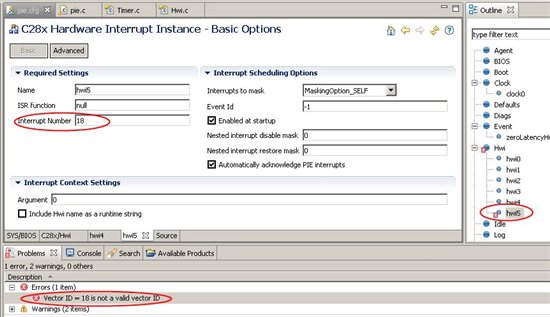Currently I am running the SysBios 6.32.05.54 with CCS5.1 on 28335 PGF ControlCard.
I am trying to use the following code(devide by 0, and accessing invalid address)
to see what is the behavior of the system.
UInt32 i = 1,tt,*pAdd =(UInt32*)0x300000 ;
i = i/3;
tt = (loopCnt/i);
*pAdd = tt;
But I found the program can run without any stop even with some devide-by-zero overflow .
Neither NMI and ILLEGAL interrupt was triggered.
I try to search how to handle the NMI and ILLEGAL interrupt in BIOS for c28x, but no useful information found yet:(
Is their anyone knowing the answer or having these experience?
Thanks in advance!


